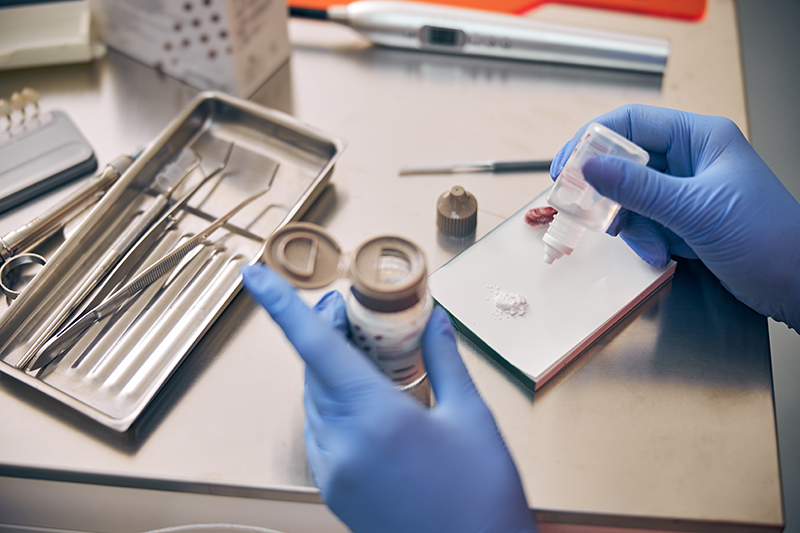How Often Should You Get Tested
for Dental Biocompatibility?
Biocompatibility testing is an indirect measurement of the reaction between serum proteins and the composition of various dental restorative materials. Dental restorative materials, just like prescription drugs, can have certain side effects or adverse reactions. Some of these reactions are of medical significance, and some are not. One of the objectives of this report is to alert both the patient and their medical practitioner to their patient-specific biocompatibility of the 8500+ medical/dental restorative materials in our database.

These results are derived from protein agglutination testing that indirectly indicate the biocompatibility between a restorative medical material and the specific patient’s serum.
The highly reactive, moderately reactive, and least reactive sensitivity outcomes are determined by the amount of protein agglutination measured from the sample, the professional observations of numerous appointed dental practitioners, and product composition information obtained from manufacturer’s material safety data sheets (MSDS).
Biocomp Labs may be limited by the amount of information released by each manufacturer. The information is supplied as a courtesy to health care providers to aide in an overall assessment of oral health. This information alone should not be used to diagnose and/or treat a health problem or disease. All reported results are intended for research purposes only and a consultation with a qualified health care provider is required.
The Biocomp Labs serum biocompatibility test provides information about the patient’s relative serum protein reactivity to the medical restorative material’s chemicals, components, and corrosion products that are currently included in our database. Some manufacturers are reluctant to disclose their complete proprietary formulae for materials. In addition, manufacturers may alter their formulation up to 10% without being required to inform consumers or federal agencies. Biocomp Labs is continually updating products in our database as changes are alerted to us by the manufacturers.
The possible outcomes of the Biocomp Labs serum biocompatibility test are:
HIGHLY REACTIVE: This level of reaction indicates distinct protein agglutination, as determined by an optical scanner absorption scale, and is highly suggestive that the chemical, component, or corrosive material is detrimental to the patient’s serum. At this reaction level, the potential for an adverse patient reaction is high, and the use of these materials is discouraged.
MODERATELY REACTIVE: This level of reaction indicates a measured reactivity which is markedly less than the highly reactive response, but still sufficiently present as determined by the optical scanner. If there are no options present in the least reactive category, then these moderately reactive medical restorative materials could be considered for use based on the medical practitioner’s clinical experience and professional judgement.
LEAST REACTIVE: This level of reaction indicates the least amount of reactivity and that the patient’s immune system could likely tolerate exposure to these medical restorative materials with minor to no measurable response.
How often should a person get tested for dental biocompatibility? The answer to this question is dependent on many factors including, but not limited to, age, sex and overall health. We come into contact with environmental exposures every day. The lifelong cumulative effects of these exposures take their toll on our biocompatibility to materials as we age. Hormonal changes also have a significant impact on our systems. Finally, illnesses and chronic conditions also change how our systems react to foreign materials. Based on all of these factors Biocomp Labs recommends getting tested for dental materials biocompatibility every 3-5 years.
Have questions about biocompatibility testing? Call us, 1 (800) 331-2303 – we’re happy to answer your questions!
